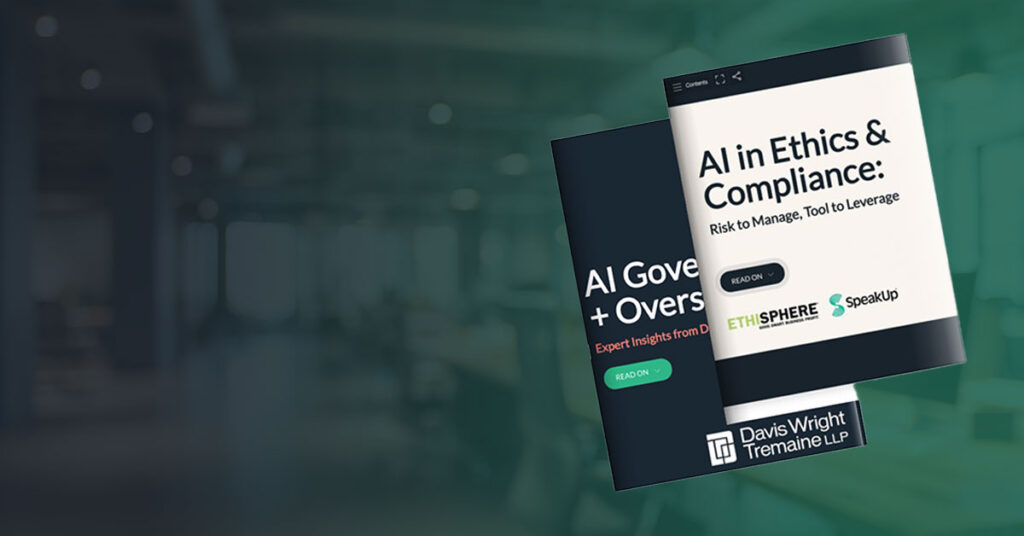Strong board relationships don’t develop in the boardroom alone. For ethics and compliance leaders, building trust with directors is less about perfect presentations and more about consistent, credible engagement.
The most effective CECOs treat board relationships as strategic assets cultivated over time and grounded in transparency, preparedness, and mutual respect. Here’s how they do it:
- Earn trust through consistency. Whether it’s your first board appearance or your fiftieth, directors want to know they can rely on you. Show up prepared. Be transparent about what’s working and what isn’t. And always follow through, and if you say you’ll deliver, then really deliver.
- Make transparency the norm, not the exception. Don’t save tough conversations for quarterly meetings. Proactively flag emerging risks or issues in between sessions with your committee chair so they and the rest of the board aren’t caught off guard. A quiet call ahead of a formal meeting can go a long way in reducing surprise and building confidence.
- Create space for candid dialogue. Many CECOs hold standing executive sessions with audit committees—used when needed, skipped when not. This structure normalizes private conversations, prevents unnecessary alarm, and keeps ethics on the agenda without drama.
- Bring insights, not just updates. Reporting what happened is table stakes. Directors want to know why it happened, what it means, and how it’s being addressed. Delivering this analysis elevates your role from messenger to strategic advisor.
- Stay grounded and human. Directors are people first. They appreciate clarity, brevity, and honesty. Avoid overly legalistic framing or fear-based messaging. Focus on how your insights help the business perform better, not just avoid failure.
- Prepare like it’s a board exam. You may only get a few minutes on the agenda, but directors could ask anything. The best-prepared CECOs invest time in anticipating questions, knowing the global context, and staying fluent in how external risks intersect with internal operations.
- Make compliance relatable and relevant. Use examples that resonate. Highlight the business impact of past missteps—inside your company or across the industry. When directors can connect the dots between ethics and performance, they’re more likely to engage and support your work.
Board relationships aren’t built on presentations—they’re built on presence, preparation, and purpose. Make yourself indispensable not by being the loudest voice in the room, but by being the one they trust most when it matters. Your board will thank you.
The 2025 Compliance Program Self-Assessment Worksheet is now available! Built from our industry-leading Ethics Quotient® (EQ) questionnaire and benchmarking from this year’s list of World’s Most Ethical Companies® honorees, this 16-question program assessment worksheet is the first step for compliance leaders looking to gain a unique glimpse into the overall effectiveness of their work to date, especially when paired with our automated Compliance Program Self-Assessment. Download your free copy today!






